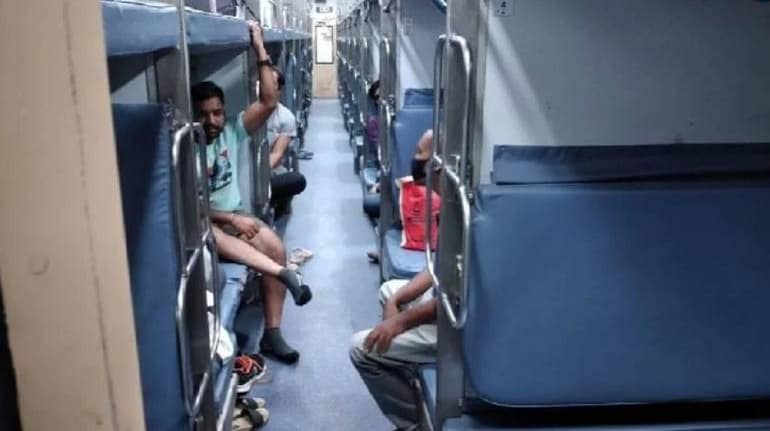The national transporter has been compelled to stop providing linen and blankets to passengers in AC coaches.
The coronavirus outbreak has brought about widespread changes in modes of travel and it means that travel by train won't be a hassle-free experience anymore in the near future.
Indian Railways has reduced the amenities offered to passengers in its bid to maintain strict hygiene standards. The national transporter has been compelled to stop providing linen and blankets to passengers in AC coaches.
According to Railway Board chief VK Yadav, passengers in AC coaches will have to carry their own blankets and bedsheets even after the coronavirus situation improves.
He said the decision has been taken by the Railways to support the measures taken by it to maintain hygiene during the journey.
In addition to these, on-board cooked food is also not available and only ready-to-eat food items, packaged drinking water and tea/coffee along with beverages are available on limited trains.
For trains without pantry car, no food is being provided and passengers have to make their own arrangements for food and drinking water.
With the Railways announcing 80 new special trains on September 5, the question that arises is why would passengers be willing to cough up fares almost equivalent to flight without the facilities which were offered earlier.
Former Railway Board chairman RK Singh admits the coronavirus outbreak has put the Railways in a difficult position in this context.
"We are still struggling to contain the number of coronavirus positive cases and its threat cannot be undermined. I fully sympathise with the public on the lack of facilities but the Railways is trying its best to cater to the demands of the passengers. The Railways is putting a lot of emphasis on hygiene and I have been told that the trains are being fully disinfected. The Railways has done very well on transportation of goods during the coronavirus period and I am confident that the Railways will bounce back on the passenger front also," he told Moneycontrol.
Singh said around 80-85 percent of passengers depend on train services and since air travel is restricted, the introduction of these 80 trains will slowly help in the process of resumption of normal services.
Singh also feels that the Railways may introduce special 'festival season' trains keeping in mind the demand during that period.
Post-coronavirus, the difference in travel standards between air and rail travel in the country has widened and the curveballs thrown by the pandemic has brought in a fresh set of operational challenges.
Follow our coverage of the coronavirus crisis here







